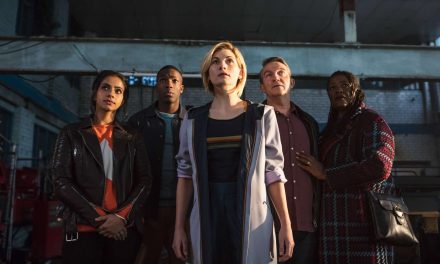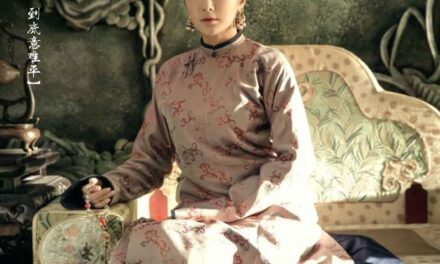I have spent most of the last week worrying about my upcoming turn on the CST rota. Like Kim Akass my TV viewing habits have gone awry, mine in the inevitable balancing act of work/life/kids where at present I am wedded to watching entertainment programming mostly as it is scheduled – how passe. Then Karen Boyle posted on Facebook her annoyance with the line-up for Friday night’s peak viewing television panel shows. Have I Got News for You, the long-running BBC news entertainment panel show, Friday 11 October 2013 – no women. Then I checked for the next week, Friday 18th October and guess what? – no women. But by Friday 25th October the show is hosted by Jo Brand – hurrah, at last a woman.

In my admittedly very limited search for the figures: of the top 65 panelists who appear most on HIGNFY, just 12 are women. Then I recalled some of the tensions over the other more maverick BBC2 news panel show which showcases comedians, Mock the Week, to find that just 9.7% of panelists have been women. And I tried to think of a space where comedic ‘banter’ was central to a panel show and thought BBC2’s Never Mind the Buzzcocks must have a better record, notwithstanding the sexism of the music industry, but in 2012 of 48 panellists, 12 were women. None of the team captains or regular weekly panellists on these shows are women, and yet last year a BBC commissioned report for the Cultural Diversity Network criticised this lack of women on panel shows. It seems as though we have reached a point where TV, or here the BBC, does not worry about a ‘token’ woman even in prime time; as we have named tokenism, so we have allowed it to be abandoned or tolerated, rather than rectified. And I’m prepared for the charges of reductionism and essentialism for pointing out these figures: I am guilty of humourless reductionism at that – what is funny is just funny, right?
The main argument deployed in defence of MTW is that women do not want to go on these shows – see Gary Lee in the Huffington Post. This is partly a process of self-exclusion and one that reflects the broader comedy scene (as Lee Mack suggested on his recent appearance on Desert Island Discs). But this is not only a story that relates to comedy. There is a parallel narrative with Question Time, the BBC’s long running political debate show. Jilly Boyce Kay [1]Kay, Jilly Boyce (forthcoming) ‘Media virgins Vs political lions: historicising the gender politics of Question Time’ in Laura Mee and Johhny Walker (eds.) Cinema, Television and … Continue reading has written about QT’s difficult history and the struggles that original producer Barbara Maxwell had trying to get women panellists to appear. She records Robin Day’s sexist comments about women panellists simply not being up to the job because they could not cope with the ‘combative’ nature of debate. Of course the debate raged again when Mary Beard’s appearance on QT early in the year provoked a series of personal attacks and misogynist abuse on Twitter, which encouraged other public women, with a good deal of professional and intellectual acumen, to talk about why they are still reluctant to appear on the show.
What connects both of these absences of women on television in the comedy panel show and the political debate show is some kind of critique about the very nature of television debate. When Jo Brand announced in 2009 that she, and some of her male colleagues, would no longer appear on MTW, it was more about distaste for the combative style than a straight-forward reference to the number of women panellists. She states “we just don’t like the prospect of having to bite someone’s foot off before they let us say something”. The comedian Milton Jones remarks on MTW that, ‘you have to go on the show with bullets in your gun and most of your bullets end up on the cutting room floor’. A more macho figuration of battle lines would be hard to find, and of course, combat makes good television.

But this kind of discussion is difficult to have in relation to gender politics. We are on awkward territory here: if we start to say men are more combative and women are more cooperative in their speech styles we are in danger of being essentialist and patronising. Then we cannot talk of a set of cultural differences because the idea of ‘two cultures’ can elude any understanding of power. And so of course, we suggest that styles of talk are ‘performative’ and can be adopted freely, or at least to be fair to Judith Butler, played out in the re-iteration of routine. Here we can end up by simply saying that ‘it’s just that women do not choose these styles’ as in Gary Lee’s commentary. It is perhaps a wise move that, like Brand, women opt out of a game that they simply don’t want to play.
Of course we have debated representational politics in feminism – recognition alone does not generate equality if it leaves the very frameworks of representation untouched. These questions are important because discursive styles are not being used evenly in popular culture: they carry different forms of potency and weight, and nowhere more so than on television. Most recently this year, when Rory Bremner announced that he would not go on MTW for its highly charged competitive environment, he went on to talk about his appearance on the show with the late Linda Smith and struggled with the exclusive terms of ‘banter’ that MTW plays out: ‘She was such a brilliant comedian and in a strange sort of way, the show didn’t respect her reputation or her intelligence’.
I want to, rather speculatively, think a little about what that ‘strange sort of way’ is and how it relates to television in particular. I looked up the word ‘banter’ in the OED, and as a noun it is referred to as ‘the playful and friendly exchange of teasing remarks’. This seems relatively benign, but when listed as a verb, the OED’s example is ‘the men bantered with the waitresses’. Not an especially scientific rationale admittedly, but this indicates some kind of sexual frisson in ‘banter’ as it is enacted. This is more explicit in other entertainment panels shows, for instance we might think of Ulrika Jonsson’s naïve stooge next to Vik and Bob’s quirky comedic routine on BBC2’s Shooting Stars, or more recently Holly ‘Willo-booby’ as side-kick to Keith Lemon’s sex-obsessed caricature on ITV2’s Celebrity Juice. These women play relatively straight and naïve ‘waitresses’ to the comedic playfulness of the male hosts where innuendo flows free. Successful female comedians and occasional panel hosts – Jo Brand, Sarah Millican, Miranda Hart – of course, do not.

Here I am reminded of an essay by Martin Montgomery [2]Montgomery, Martin (1999) Talk as Entertainment: the case of the Mrs Merton Show In Louann Harmann (ed.) Talk About Shows CLUEB. on the comedic style of Mrs Merton on theMrs Merton Show [1995-1998]: a comedy chat show where comedian Caroline Aherne plays the character of the elderly Mrs Merton which allows her license to say what she wants to her guests. Montgomery talks about how Merton breaks all the main ‘maxims’ of conversational norms, producing laughter through ritual insults, sexual innuendo and utilising her bodily excess. She can transgress these norms because she adopts the character of Mrs Merton – a straight talking slightly naïve grandma. Sarah Millican and Miranda Hart in different ways remind me of this kind of character too – and I have heard Millican talk of herself as a ‘glamorous nan’ (Millican is 38). The character provides a vehicle for the humorous banter such that competition and sexual threat can be diffused. When Brand and Millican have their own shows they can, of course, set more of their own terms.
In an article in Vanity Fair about women and comedy Hitchens suggests that funny is to men as pretty is to women implying that the two are not really interchangeable or co-existent. I thought about this awful possibility as I re-watched last week’s Strictly Come Dancing – the blessed week when Brucie stepped down and Claudia Winkleman stepped in. There is a palpable difference between Tess Daly and Claudia: Tess plays it straight to the venerable Brucie, whilst Claudia is set free. She turns to Aljaz Skorjanic, the professional dancing partner of Abby Clancy, whilst they await the judges scores and says something like: ‘turn away you are too beautiful’… then later ‘I told you to turn away’. On a cut back to them after the scores, she says, ‘you are defiant, I like it!’, to the palpable hilarity of the other stars in the background. This may have lost something in transcription, but Winkleman is famous for slightly riské asides in other ‘safe’ entertainment spaces. She has also been one of the few female hosts of Never Mind the Buzzcocks which may be related to her apparently ‘quirky’ (posh[3]Winkleman is the daughter of Eve Pollard and Barry Winkleman.?) demeanour, and ability to ‘banter’, as some commentators have described.

Of course it is not right to say that women need to speak like men; now that is reductionist and offers us only polar possibilities. Winkleman has found space to do something other than the stooge without having a mainstream comedy act, and has a line of witty banter that has made it onto prime time. We can think of others, sure: Su Perkins, Liza Tarbuck, Janet Street Porter, Jenny Éclair, and perhaps their greater success on radio. It is curious that Winkleman’s presenting of the show Film 2010 was met with a good deal of scepticism, not just for her qualifications in film knowledge, but for her speech style. She is criticised for her loquaciousness compared with the cautious and informative styles of Jonathon Ross and Barry Norman. Only women are ever criticised for talking too much.
How all of this relates to QT, I am not really sure, and I’ll leave that to Jilly Kay, but one particular response to Mary Beard’s accusations of misogyny came with more misogyny from Rod Liddle in The Spectator, who made it clear that Beard provoked such response by the way she looks. In this discussion we might also want to think about ITV’s daytime all-female panel show Loose Women and I might write my next blog about my experience in the studio audience where the warm-up act addressed us all as a ‘bunch of old slappers’. Despite this, we all know from experience that women’s banter is funny, intelligent and interesting and we should not shut up about its place on television.
Helen Wood is Professor of Media and Communication at Leiceter University. She has published Talking With Television (2009) University of Illinois Press, with Beverley SkeggsReality Television and Class (2011) BFI Palgrave and Reacting to Reality Television (2012) Routledge. She is editor of European Journal of Cultural Studies and is currently working on the AHRC project ‘A History of Television for Women’.
References
| ↑1 | Kay, Jilly Boyce (forthcoming) ‘Media virgins Vs political lions: historicising the gender politics of Question Time’ in Laura Mee and Johhny Walker (eds.) Cinema, Television and History: New Approaches. Newcastle Upon Tyne: Cambridge Scholars Publishing |
|---|---|
| ↑2 | Montgomery, Martin (1999) Talk as Entertainment: the case of the Mrs Merton Show In Louann Harmann (ed.) Talk About Shows CLUEB. |
| ↑3 | Winkleman is the daughter of Eve Pollard and Barry Winkleman. |





